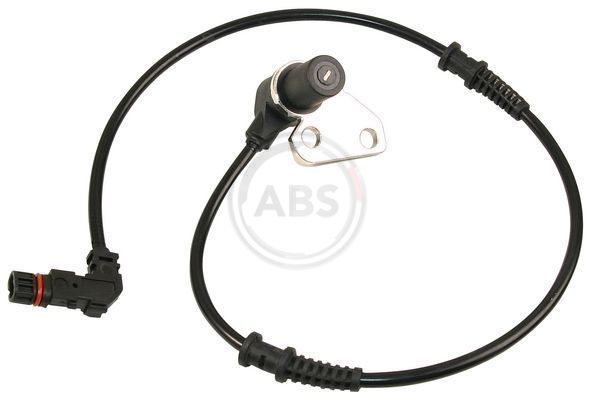When to Replace a Car ABS Sensor: Signs of a Failing One

The Anti-lock Braking System (ABS) is a crucial safety feature in modern vehicles, ensuring optimal braking performance and preventing wheel lockup during hard stops. At SparesWorld.co.ke, we understand the importance of maintaining your vehicle’s safety systems. In this article, we’ll discuss when to replace a car ABS sensor and the signs of a failing one, helping you stay informed and safe on the road.
What is an ABS Sensor?
The ABS sensor monitors the speed of each wheel and sends data to the vehicle’s ABS control module. This information helps the system determine how to modulate brake pressure to prevent wheel lockup, allowing for better control during emergency braking situations. A faulty ABS sensor can lead to decreased braking performance and increased stopping distances, which can be dangerous.
Signs of a Failing ABS Sensor
Recognizing the signs of a failing ABS sensor early can save you from costly repairs and ensure your safety. Here are some common indicators:
1. ABS Warning Light
One of the first signs of a failing ABS sensor is the illumination of the ABS warning light on your dashboard. If this light comes on, it’s essential to have your system inspected as soon as possible.
2. Decreased Braking Performance
If you notice that your vehicle takes longer to stop or feels less responsive when braking, this could indicate a malfunctioning ABS sensor. A failing sensor may prevent the ABS system from engaging correctly, compromising your braking ability.
3. Locking Wheels During Hard Braking
If your wheels lock up during hard braking, this is a serious issue. A properly functioning ABS system prevents this from happening. If you experience wheel lockup, it’s crucial to check the ABS sensors and the entire braking system.
4. Unusual Sounds
Grinding, clicking, or other unusual sounds coming from the wheels during braking can be a sign of a failing ABS sensor. These sounds may indicate that the ABS system is not working correctly and needs attention.
5. Inconsistent Brake Pedal Feel
If you experience a spongy or hard brake pedal, it could indicate that your ABS system is not functioning properly. A failing sensor can affect how the brake system operates, leading to an inconsistent feel.
When to Replace Your ABS Sensor
If you notice any of the signs mentioned above, it’s time to consider replacing your ABS sensor. Here are some steps to take:
-
Diagnostic Check: If the ABS warning light is illuminated, have a professional mechanic perform a diagnostic check to pinpoint the issue.
-
Inspection: If you suspect a failing ABS sensor, have your vehicle’s braking system thoroughly inspected, including the sensors, wiring, and control module.
-
Replace as Needed: If the ABS sensor is confirmed to be faulty, replacing it promptly is crucial for your safety and the effectiveness of your braking system.
Why Choose SparesWorld.co.ke for Your ABS Sensor Needs?
At SparesWorld.co.ke, we offer a wide selection of high-quality ABS sensors for all makes and models. Our parts are designed to meet or exceed OEM specifications, ensuring a perfect fit and reliable performance. With fast shipping and excellent customer support, we make it easy to keep your vehicle safe on the road.
Conclusion
Being proactive about your vehicle’s safety systems is essential for ensuring your safety and the safety of others on the road. By recognizing the signs of a failing ABS sensor and knowing when to replace it, you can maintain optimal braking performance. Visit SparesWorld.co.ke today to browse our selection of ABS sensors and other automotive parts, and drive with confidence!

 Loading..
Loading..